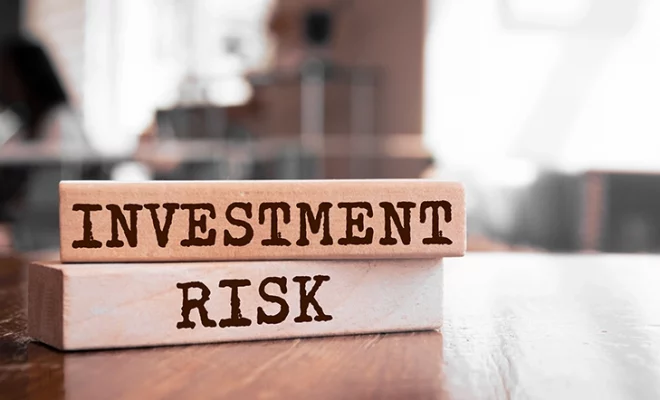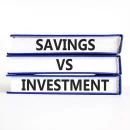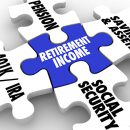8 Reasons to Avoid the Urge to Abandon Stocks During an Economic Downturn
Slowed down economic activity, rising unemployment, falling share price, decreasing house values, low consumer confidence, and dropping investments, can make an investor nervous and jittery. This essentially happens because an economic downturn can severely affect their financial stability. To overcome this sliding phase, investors often abandon their risky assets and stocks to minimize losses. While it is tempting to cash out from risky investments such as stocks, this may not be the ideal strategy in all cases. In fact, as per the 100-year analysis of Dow Jones Industrial Average, all stocks go up over time. So, a hurried move could cause a drastic fall in your hard-earned profits.
Here are 8 reasons to avoid the urge to abandon stocks during an economic downturn:
Table of Contents
1. A downturn is temporary
The most important thing to remember in an economic downturn is that the phase is temporary, and an upturn will follow soon after. The nature of the market is cyclical, and so the value of stocks inevitably fluctuates. Hence, it is beneficial to think about the long-term and not sell stocks in panic when they are at their lowest values. It is also advisable to have the patience for the market to rebound because eventually, all stocks go up. This is evident in the market crisis of 2008, where most investors sold off their stocks when the market plummeted. The market reached its bottom in 2009 but then recovered to its earlier glory and well beyond. This led to a significant loss for panic sellers since they missed out on the rising value of stocks. Alternatively, investors who did not give in to their urge to sell in the downturn benefitted sparingly.
2. There are high penalties and taxes
A major reason that may help you gain patience in trying times is the imposition of taxes and penalties. Typically, if you give up your 401(k) account before you are 59.5 years old, you would have to pay a heavy penalty of 10% on the amount withdrawn. Moreover, if you abandon stocks as soon as they fetch you a profit in a challenging market, you would be subject to capital gain taxes. This could prove disastrous if you wish to re-invest it when the market strides up. Further, you would have paid taxes on an amount, which you re-invested. This could have ideally been avoided in the first place.
3. There is a possibility to switch to not so rash alternatives
A major reason to curb your urge to sell stocks during an economic crisis is that it is beneficial to stay in the market than opt-out completely in fear of losses. If you choose to stay in the market and withstand the current slowdown, you would likely be able to encash on the rebounding market value of stocks. Hence, while the slow phase lasts, you could choose to shift a reasonable part of your portfolio to investments that are not as volatile, such as federal and municipal bonds. But the stocks should remain in the asset allocation. In case, you own a completely stock-driven portfolio, and you want to minimize losses, you can consider shifting money to mutual funds or exchange-traded securities.
4. Diversification can help minimize losses
While economic fluctuations cannot be predicted precisely, it is possible to prepare your portfolio to withstand such downturns. This helps you to not give in to market falls and instead stay put to benefit from the recovery in the future. It is recommended to devise your portfolio in a way to withstand slumps. You can easily do this by understanding your risk tolerance, spreading risk across the portfolio, and reducing exposure to single stocks. Diversification of the portfolio also helps to balance your stock losses with other secured assets like bonds. Moreover, the idea is to not concentrate all your money on a particular type of stock. Instead, your portfolio should be distributed into various asset classes, for example, stocks, bonds, cash equivalents, and others. You could also divide them into asset categories, like large-, mid-, small-cap, and growth and value funds.
5. Balancing risk tolerance can help reduce losses
Stock market investments are inherently risky. Yet, panic is most likely the first emotion you experience during an economic slump. But in such times, it is important to reflect on your risk tolerance. For winning long-term results, it is best to sail through turbulent times and wait for the impending recovery, which in most cases, is near the horizon. This can be done more smoothly if you know how much risk you can handle. If your risk tolerance is high, stay invested in the stocks until the market gears up. However, if the risk appetite is low, several strategies can be deployed to hedge losses.
6. Acting in haste can prove to be detrimental for savings
When you begin investing, you have a target in mind. And ideally, as a prudent investor, you would have also conducted strong stock research before investing. Hence, you are the best judge of the strengths, weaknesses, and the ultimate objective of your investment. This should be a strong reason to keep you from abandoning your stocks in recession. It is advisable to keep in mind and understand why you started your investment journey. This could prevent you from tossing away a great long-term investment by giving in to the fears of today.
7. The stock market cannot be timed
As an investor, the foremost thing to understand is that you cannot time the market. Thinking that you can accurately predict the future is a common mistake. Hence, the ideal way to move forward is to build a solid foundation and stick to rational decisions. You cannot predict if the market downturn will last for a specific period or when the market will begin to recover. This alone makes a strong point for withholding your stocks until their value rises. If you sell your stocks considering the downturn will continue for long, you might be surprised if the stocks pick-up soon, causing you to miss out on the rise. Alternatively, if you assume the downturn to last for a short period and you exit the market, you will end up losing the opportunity to buy stocks when the prices are low. This could have otherwise helped you build a stronger portfolio.
8. Abandoning is not a part of the plan
When faced with an economic slump, one thing that can help you stay focussed is that abandoning your investments was not a part of your original plan. The plan is based as per your financial goals and follows a sound investment strategy reflecting a well-diversified portfolio. Hence, short-term market fluctuations should not be considered too seriously, and you should hold on to your stocks till they rebound. Emotions of fear can prove detrimental to the ultimate goal. Instead of fear-selling, a down period may be the ideal time to accumulate more stocks at a deep discount. You could take advantage of dollar-cost averaging strategy to build your portfolio at a lower cost by buying more when the cost is low.
To sum it up
Abandoning stocks during a market collapse is not an ideal strategy. Instead, you should be patient and follow your well-crafted investment strategy with discipline during trying times. That said, for an inexperienced investor, an economic downturn can be mentally and financially challenging. In these times, professional financial advisors can provide suitable advice to help take steps in the right direction.


















